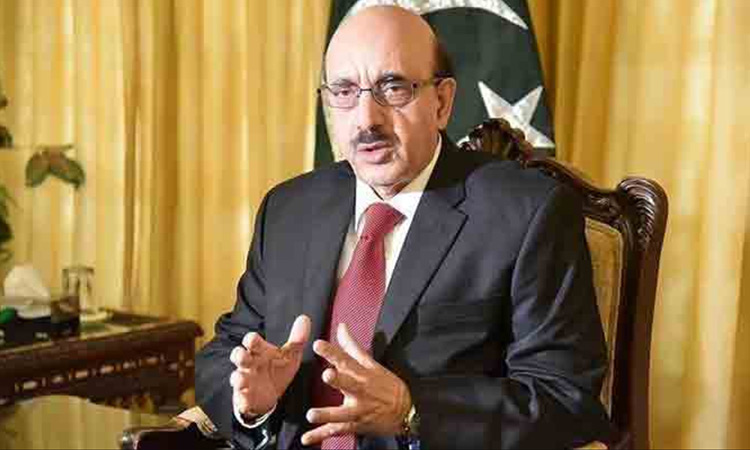There’s no misunderstanding between the United States and Pakistan over Islamabad’s move to buy discounted Russian oil, Ambassador Masood Khan has said, while underscoring that the reset Islamabad-Washington relationship is “transcending the past.”
“We have placed the first order for Russian oil, and this has been done in consultation with the United States government; There’s no misunderstanding between Washington and Islamabad on this count,” he said in response to a question at a conference organized by the Wilson Center’s South Asia Institute, a Washington-based think-tank, on the future of relations between the two countries. The questioner had suggested the energy purchase from Russia could adverse impact on Pakistan’s already difficult relationship with the U.S.
“They (US) have suggested that you are free to buy anything below or up to the price cap (set by G-7 nations), and we have abided by that agreement,” the Pakistani envoy said.
“I think Washington is fine with that,” Ambassador Khan added.
Last December, G7 and EU countries set a price cap of $60 per barrel on Russian oil in a move aimed at preventing Moscow from using the revenues to finance its war against Ukraine. Earlier this year, a State Department spokesperson said that Pakistan can purchase oil from Russia at a discounted price even though it has not signed the price-cap on Russian petroleum products, pointing out that Washington recognizes the pressure governments face to secure affordable fuel.
In his address to the conference, Ambassador Masood Khan said that Pakistan’s ties with the United States had suffered a “brief period of uncertainty” after the U.S.-led foreign military withdrawal from Afghanistan in August 2021, when the Taliban seized control of the country.
He said the relationship with the U.S. was back on track and both sides were working to boost economic and security partnerships. Elizabeth Horst, a senior State Department official who also spoke at the Wilson Center conference Thursday, concurred. She said the last year had helped reset the U.S.-Pakistan relationship.
The two countries held mid-level defence dialogues in Washington and a counter terrorism working group in Islamabad in February and March, respectively, she said. In this regard, the Pakistani envoy said the two states were successfully “recalibrating and rejuvenating” their relations in the wake of changing circumstances. “The results in a short span of time are impressive,” he said.
Referring to frequent high-level contacts between Foreign Minister Bilawal Bhutto Zardari and U.S. Secretary of State Anthony Blinken, Pak-US dialogues on health, energy, climate change, counter-narcotics, counterterrorism and defence and the recently held Trade and Investment Framework Agreement (TIFA) Ministerial Council meeting, the Ambassador said that these processes were producing results and defining pathways for future growth.
“They are also creating a structure for an overarching, multi-dimensional dialogue”, he continued. The ambassador said that Pakistan’s Foreign Minister would be attending the Shanghai Cooperation Organization (SCO) Conference in Goa early next month. “The context is multilateral, not bilateral. Let’s hope that this decision goes down well to bolster diplomacy.” Islamabad values Washington’s encouragement to India and Pakistan to engage, he said, adding that the “US could act as a catalyst to help resolve the Jammu and Kashmir dispute which has kept the region on the brink of war.” Cautioning about the serious perils of the policy of imbalance in South Asia, Ambassador Masood Khan also urged the US to “revive its role on strategic stability in South Asia”. “It is important that the US restores – for Pakistan – Foreign Military Financing and Foreign Military Sales, suspended by the previous Administration,” he said. Pakistan, he said, seeks to forge strong ties with the US and make them stronger. “We do not believe our relations with China should affect them in any way.
Source : Daily Times


